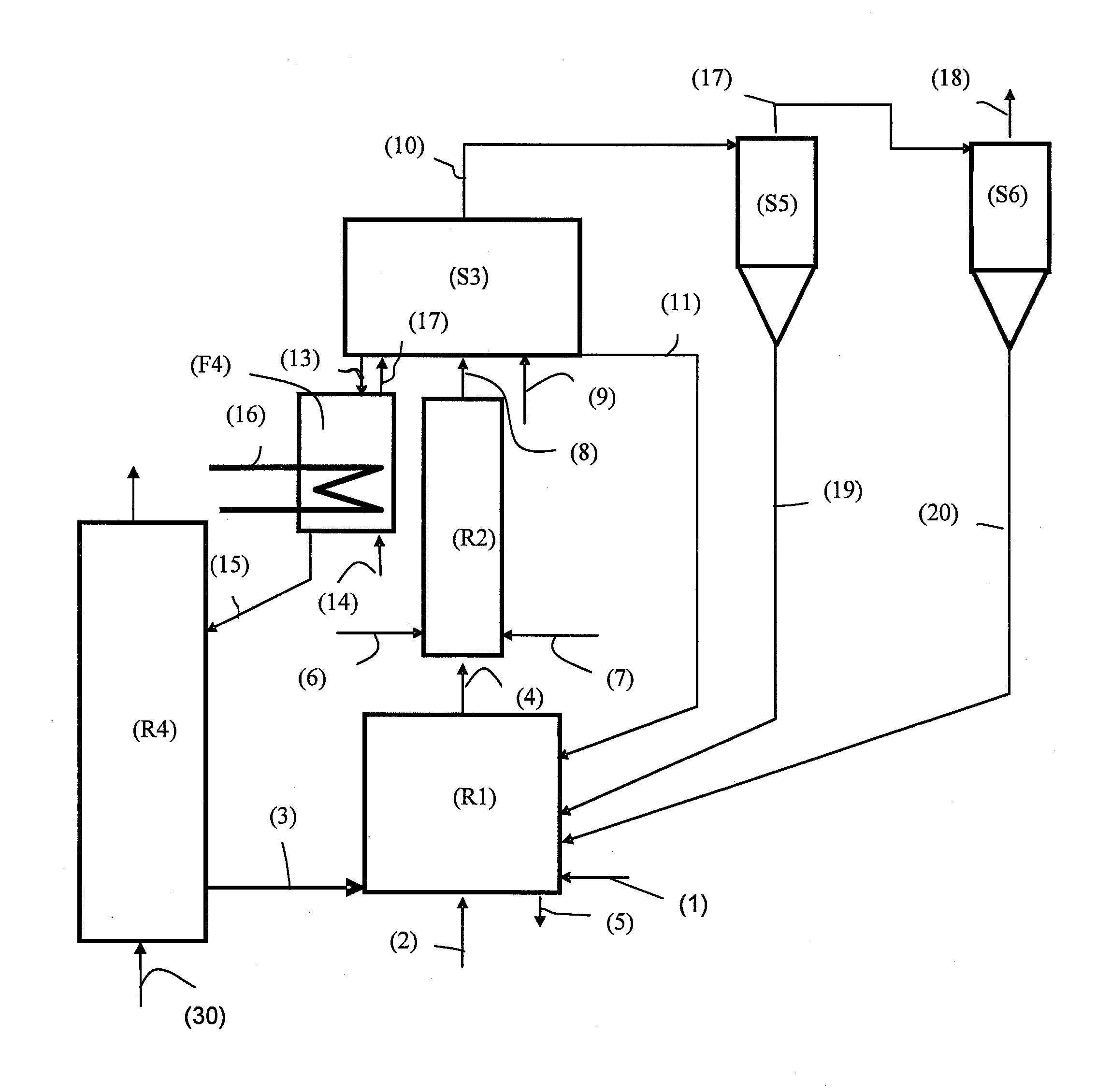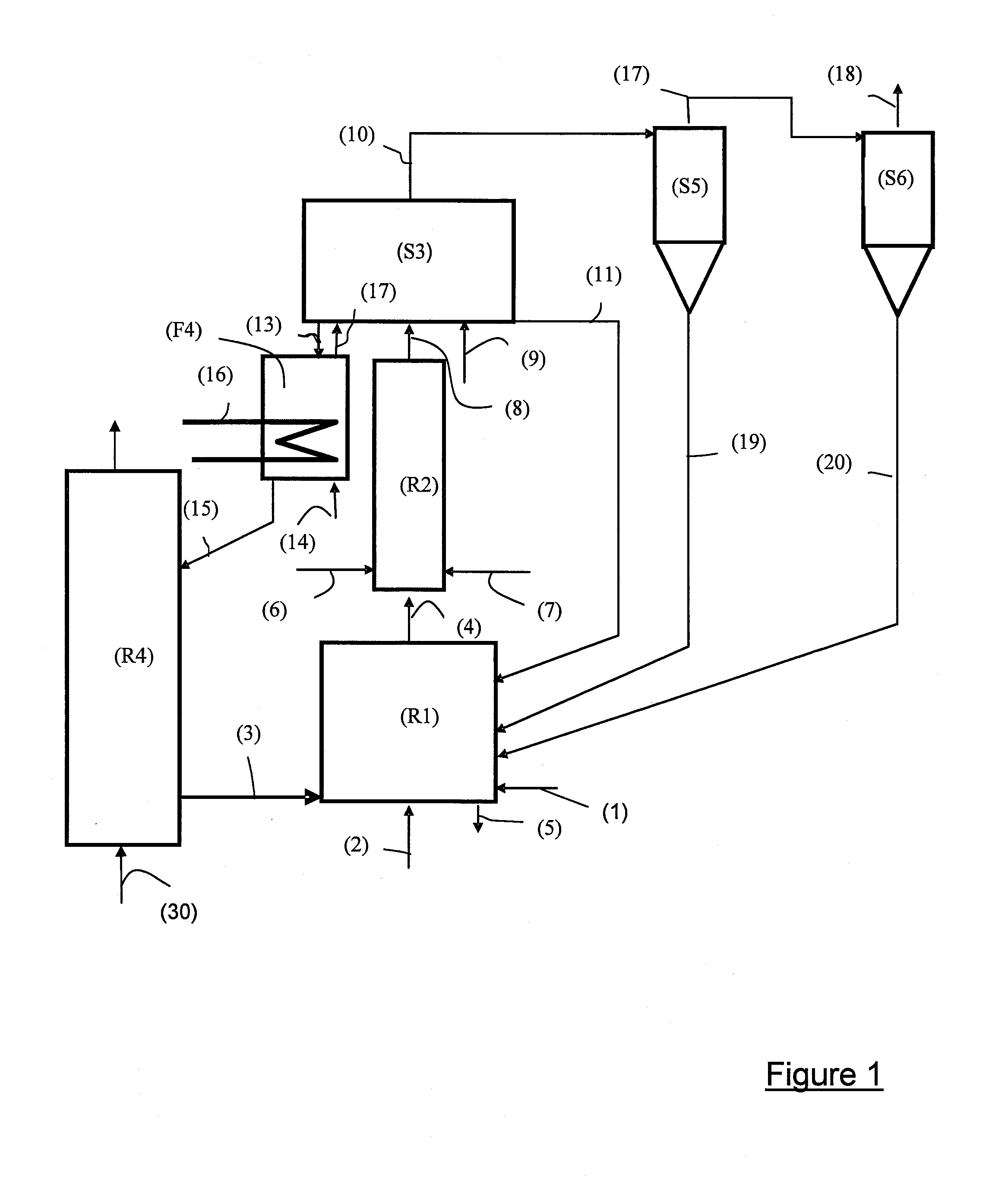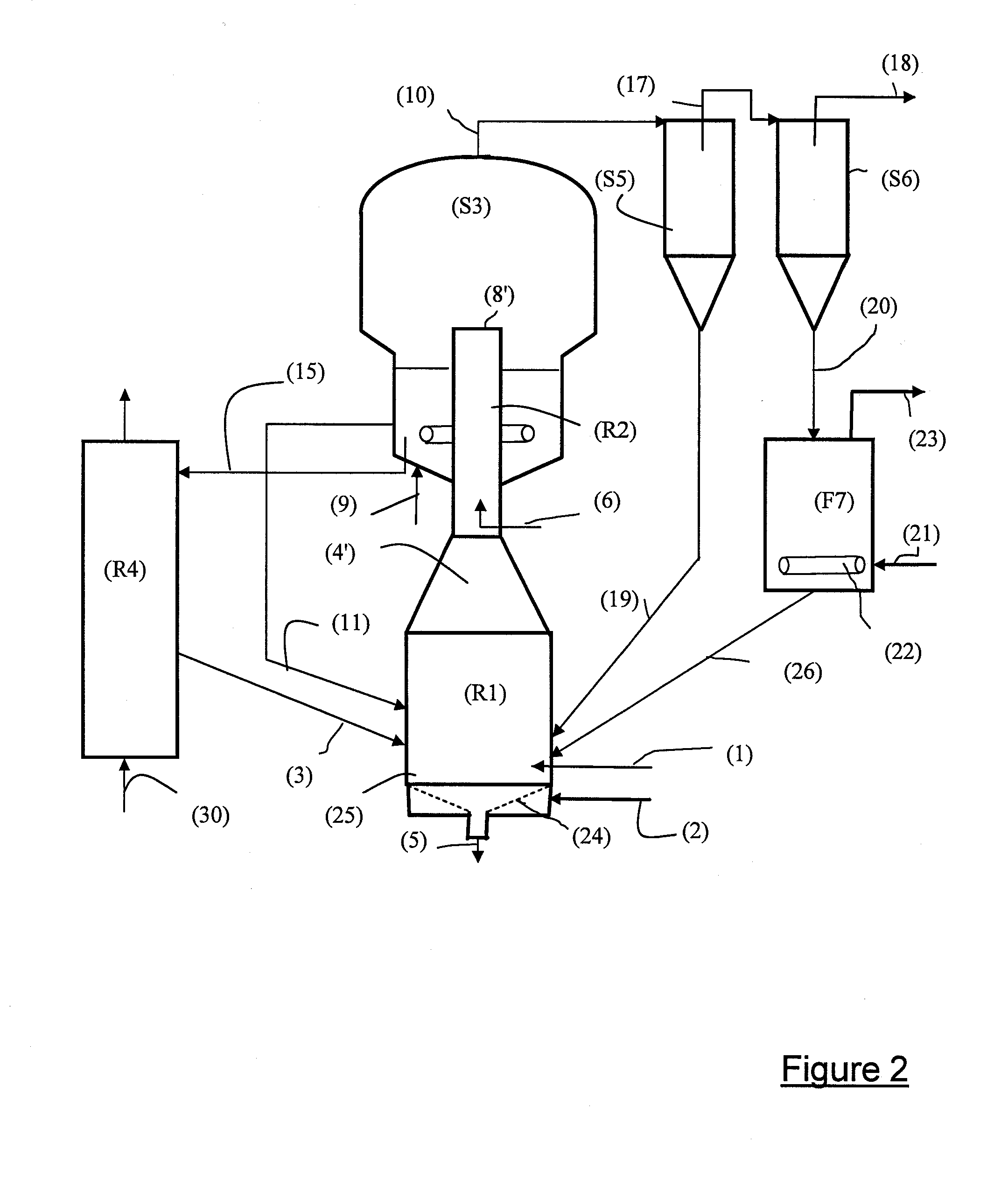Chemical looping combustion method with a reaction zone including a gas-solid separation zone and plant using same
a reaction zone and looping combustion technology, applied in the field of chemical looping combustion, can solve the problems of difficult to achieve total combustion, difficult to obtain sufficient particle residence times, and delicate operation of separating unburnt particles from oxide particles
- Summary
- Abstract
- Description
- Claims
- Application Information
AI Technical Summary
Benefits of technology
Problems solved by technology
Method used
Image
Examples
example
[0134]A feed of coal type is treated according to the method of the invention as described in FIG. 1.
[0135]We consider a chemical looping combustion with a nominal power of 100 MWth using nickel-based oxygen-carrying particles having the following properties:[0136]density: 2725 kg / m3 [0137]reversible transport capacity: 1.48 mass %.
[0138]The feed considered is a middle coal having the properties given in the table below:
Dry coal compositionCWt. %68.7HWt. %5.45NWt. %1.65SWt. %3.75AshWt. %14.76OWt. %5.69totalWt. %100Other dataFixed carbon (dry mass %)Wt. %58.3Humidity (air drying)Wt. %4Net heat capacity (air drying)kcal / kg6145Net heat capacity (ultimatekcal / kg6335drying)Volatile matter %Wt. %26.1
[0139]Considering the power required and the net calorific value (NCV) of the coal of 6145 kcal / kg, the feed flow rate in line (1) is 3.89 kg / s.
[0140]The rate of circulation of the oxygen-carrying solid (metallic oxides) required for combustion via line (3) is then 575 kg / s for a transferred a...
PUM
 Login to View More
Login to View More Abstract
Description
Claims
Application Information
 Login to View More
Login to View More - R&D
- Intellectual Property
- Life Sciences
- Materials
- Tech Scout
- Unparalleled Data Quality
- Higher Quality Content
- 60% Fewer Hallucinations
Browse by: Latest US Patents, China's latest patents, Technical Efficacy Thesaurus, Application Domain, Technology Topic, Popular Technical Reports.
© 2025 PatSnap. All rights reserved.Legal|Privacy policy|Modern Slavery Act Transparency Statement|Sitemap|About US| Contact US: help@patsnap.com



